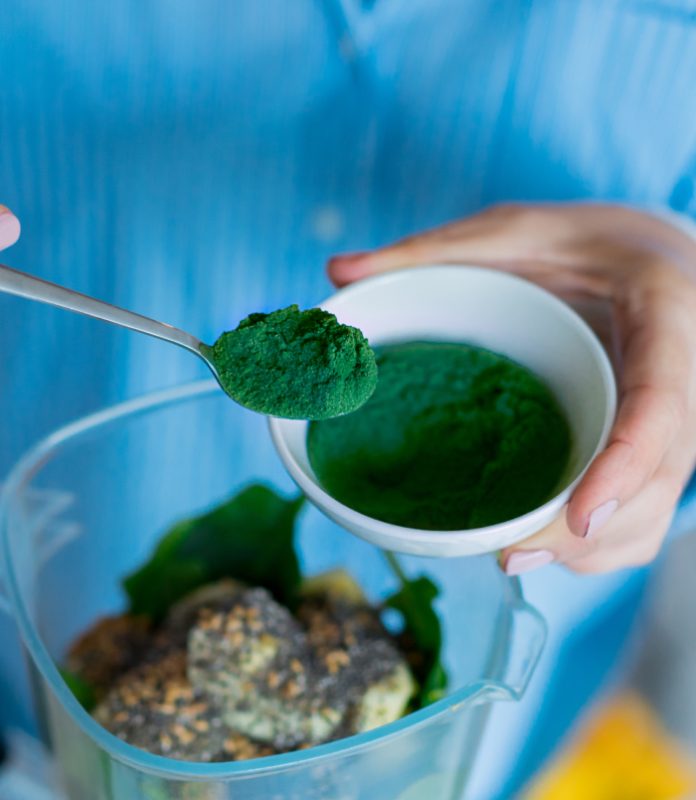No products in the cart.
Unlocking the Benefits of Hyaluronic Acid for Radiant Skin
Discover the secret ingredient that is revolutionizing skincare products—Hyaluronic Acid. Delve into the fascinating world of this remarkable compound and explore why it has become a staple in the beauty industry.
What exactly is Hyaluronic Acid?
Hyaluronic Acid is a key ingredient found in topical, oral, and injectable healthcare products. Composed of sugar molecules, it plays a vital role in maintaining the structural integrity of our bodies. Additionally, its unique ability to retain large amounts of water ensures optimal hydration and lubrication of the skin and joints.
The wonders of Hyaluronic Acid in skincare
As we age, our natural production of Hyaluronic Acid decreases, particularly in the skin. This decline in hydration significantly contributes to skin aging, resulting in decreased elasticity and the appearance of wrinkles. Given its potential to enhance skin health and combat signs of aging, it’s no wonder that Hyaluronic Acid has garnered significant attention in the beauty world. However, its benefits extend beyond skincare.
The impact of sun damage and the role of Hyaluronic Acid
Excessive sun exposure is a leading cause of premature skin aging. Studies have shown that sunlight can damage Hyaluronic Acid levels in the skin, leading to negative effects over time. While sensible sun exposure is essential for vitamin D synthesis, it’s crucial to protect delicate facial skin from the harmful effects of the sun. Consider using nonchemical sunscreens and focusing on exposing arms and legs rather than the head and neck to minimize photoaging effects.
Injectable fillers and the risks involved
Injectable skin fillers, including Hyaluronic Acid, have gained popularity in the pursuit of youthful looks. However, it’s important to be aware of potential side effects. While generally safe, injectable fillers can cause adverse reactions, such as swelling, lumps, and skin discoloration. In rare cases, severe complications like tissue necrosis and vision loss may occur. Thankfully, alternative forms of Hyaluronic Acid offer benefits without the associated risks of injectable fillers.
Exploring different forms of Hyaluronic Acid
Topical and oral applications of Hyaluronic Acid offer safer alternatives with minimal side effects. Many skincare products harness its potential to improve skin appearance and combat aging signs. The long-term benefits of Hyaluronic Acid include cellular regeneration, reduced inflammation, and increased connective tissue production. Remarkably, it has also shown promise in wound healing, aiding in the treatment of chronic leg ulcers and reducing healing times for acute wounds and burns.
Unlocking the potential of Hyaluronic Acid
Clinical studies consistently demonstrate the efficacy of topical Hyaluronic Acid in increasing hydration, improving elasticity, and reducing fine lines. To ensure effectiveness, formulations must overcome the challenge of Hyaluronic Acid’s large molecule size. Micronized and nano-Hyaluronic Acid preparations, along with carrier molecules like peptides and liposomal formulations, enhance absorption and maximize benefits. Oral supplementation of Hyaluronic Acid has also proven beneficial, with improvements in skin health and joint pain reported.
Beyond skincare: Additional benefits of Hyaluronic Acid
Hyaluronic Acid’s versatility extends beyond skincare. It is used in treating osteoarthritis symptoms by injecting it directly into joints, providing lubrication and pain relief. Oral supplementation has also shown promising results in alleviating knee pain. Furthermore, its application in treating dry eyes and cataracts highlights its potential in eye health.
Embrace the Power of Hyaluronic Acid
Hyaluronic Acid offers a wide range of benefits for the skin, joints, and overall well-being. Whether you choose topical products, oral supplements, or targeted treatments, the safety and effectiveness of Hyaluronic Acid make it an exceptional addition to your skincare routine. Join the countless individuals who have experienced its transformative effects on their skin and embrace the power of Hyaluronic Acid today.
